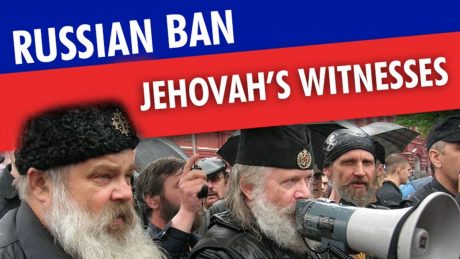Dennis Christensen had just finished his sermon during a Jehovah’s Witnesses worship service in May 2017 in Oryol, Russia, when riot police stormed the small gathering. Arrested on charges of “organizing the activities” of an extremist group, Christensen received a six-year prison sentence in February 2019.
“I have done nothing wrong, I have not violated any Russian laws, and I have nothing to be ashamed of,” Christensen said at his appeal hearing May 23.
“What is happening to me and to other Jehovah’s Witnesses here in Russia — false accusations of extremism, interrogations, arrests, searches, confiscations, investigations, threats, and now even torture — that is something to be ashamed of,” said Christensen, a Danish citizen with a Russian residence permit since 2000.
His appeal was denied.
What is happening in Russia?
Religious minorities like the Jehovah’s Witnesses in Russia face an increasingly repressive environment, leading the U.S. State Department to add Russia to the International Religious Freedom Special Watch List in 2018.
Based on vague laws defining what constitutes extremism, Russia banned the Christian denomination in April 2017 and called it an “extremist organization.” As of August 2019, the Jehovah’s Witnesses organization reports nearly 250 Jehovah’s Witnesses are awaiting trial on criminal charges in Russia and Crimea. More than 60 of them are in prison or under house arrest. Since January 2018, Russian police have raided more than 600 homes of Jehovah’s Witnesses.
And the police tactics have become increasingly brutal.
U.S. reaction to torture
On September 10, the United States publicly designated two Russian officials for their involvement in the torture of at least seven Jehovah’s Witnesses.
Vladimir Petrovich Yermolayev and Stepan Vladimirovich Tkach of the lnvestigative Committee headquarters in Surgut, Russia, led the interrogations that included subjecting the seven individuals to suffocation, electric shocks and severe beatings.
“This brutality stands in marked contrast to the peaceful practices of the Jehovah’s Witnesses who have been criminally prosecuted for their religious beliefs,” State Department spokesperson Morgan Ortagus said.
“Russia should end its unjust campaign against the Jehovah’s Witnesses and immediately release the over 200 individuals it currently has imprisoned for exercising their freedom of religion or belief,” she said.









